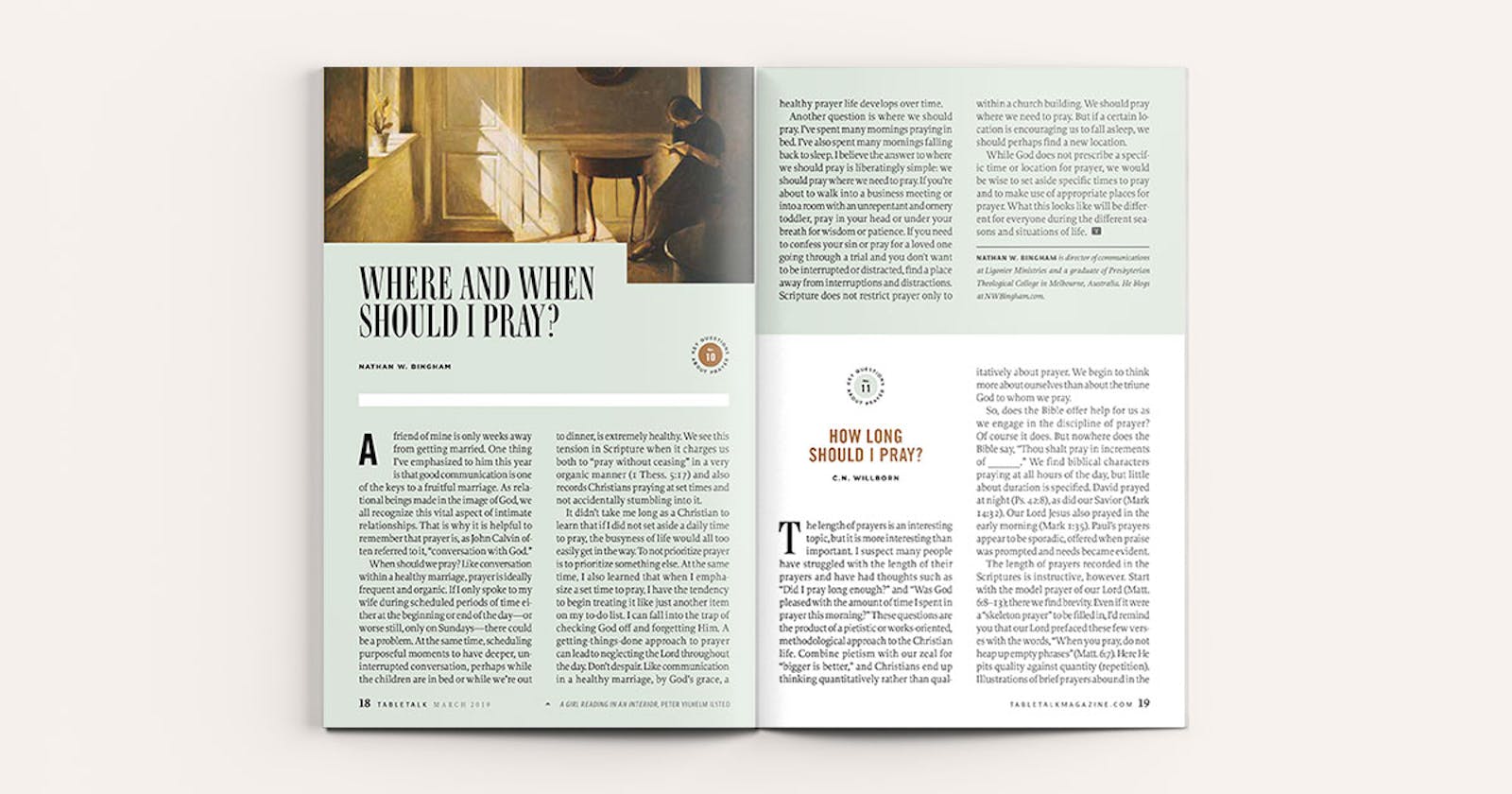
Request your free, three-month trial to Tabletalk magazine. You’ll receive the print issue monthly and gain immediate digital access to decades of archives. This trial is risk-free. No credit card required.
Try Tabletalk NowAlready receive Tabletalk magazine every month?
Verify your email address to gain unlimited access.
The length of prayers is an interesting topic, but it is more interesting than important. I suspect many people have struggled with the length of their prayers and have had thoughts such as “Did I pray long enough?” and “Was God pleased with the amount of time I spent in prayer this morning?” These questions are the product of a pietistic or works-oriented, methodological approach to the Christian life. Combine pietism with our zeal for “bigger is better,” and Christians end up thinking quantitatively rather than qualitatively about prayer. We begin to think more about ourselves than about the triune God to whom we pray.
So, does the Bible offer help for us as we engage in the discipline of prayer? Of course it does. But nowhere does the Bible say, “Thou shalt pray in increments of ______.” We find biblical characters praying at all hours of the day, but little about duration is specified. David prayed at night (Ps. 42:8), as did our Savior (Mark 14:32). Our Lord Jesus also prayed in the early morning (Mark 1:35). Paul’s prayers appear to be sporadic, offered when praise was prompted and needs became evident.

The length of prayers recorded in the Scriptures is instructive, however. Start with the model prayer of our Lord (Matt. 6:8–13); there we find brevity. Even if it were a “skeleton prayer” to be filled in, I’d remind you that our Lord prefaced these few verses with the words, “When you pray, do not heap up empty phrases” (Matt. 6:7). Here He pits quality against quantity (repetition). Illustrations of brief prayers abound in the Bible. Moses cried out to the Lord for mercy at a crucial time, and his prayer takes up four verses (Deut. 9:26–29). Elijah prayed to defend God’s honor in two verses (1 Kings 18:36–37). Nehemiah’s pivotal prayer takes up a whopping seven verses (Neh. 1:5–11). Paul’s recorded prayers are all short (e.g., Phil. 1:9–11; Col. 1:9–12). Even our Lord’s High Priestly Prayer recorded in John 17 is brief. Read it out loud sometime and time it—it’s maybe three minutes long.
Yes, sometimes we’ll find ourselves spending extended time in prayer, but length is not the most important thing. The significance is in praying the Bible. A good guide for this is provided in Westminster Shorter Catechism 98–107. Let us take God’s words and “pray without ceasing” (1 Thess. 5:17). That is to say, as often as we see a praiseworthy matter in everyday life, let us praise Him. As often as we see a thanks-worthy reminder during the day, let us thank Him. As often as we see a sinner, let us petition Him. As often as we are tempted, let us cry out to Him. Those prayers will be short but effectual when we pray in faith (Matt. 21:22). Here’s a better answer to the question, “How long should I pray?”: till you die.
